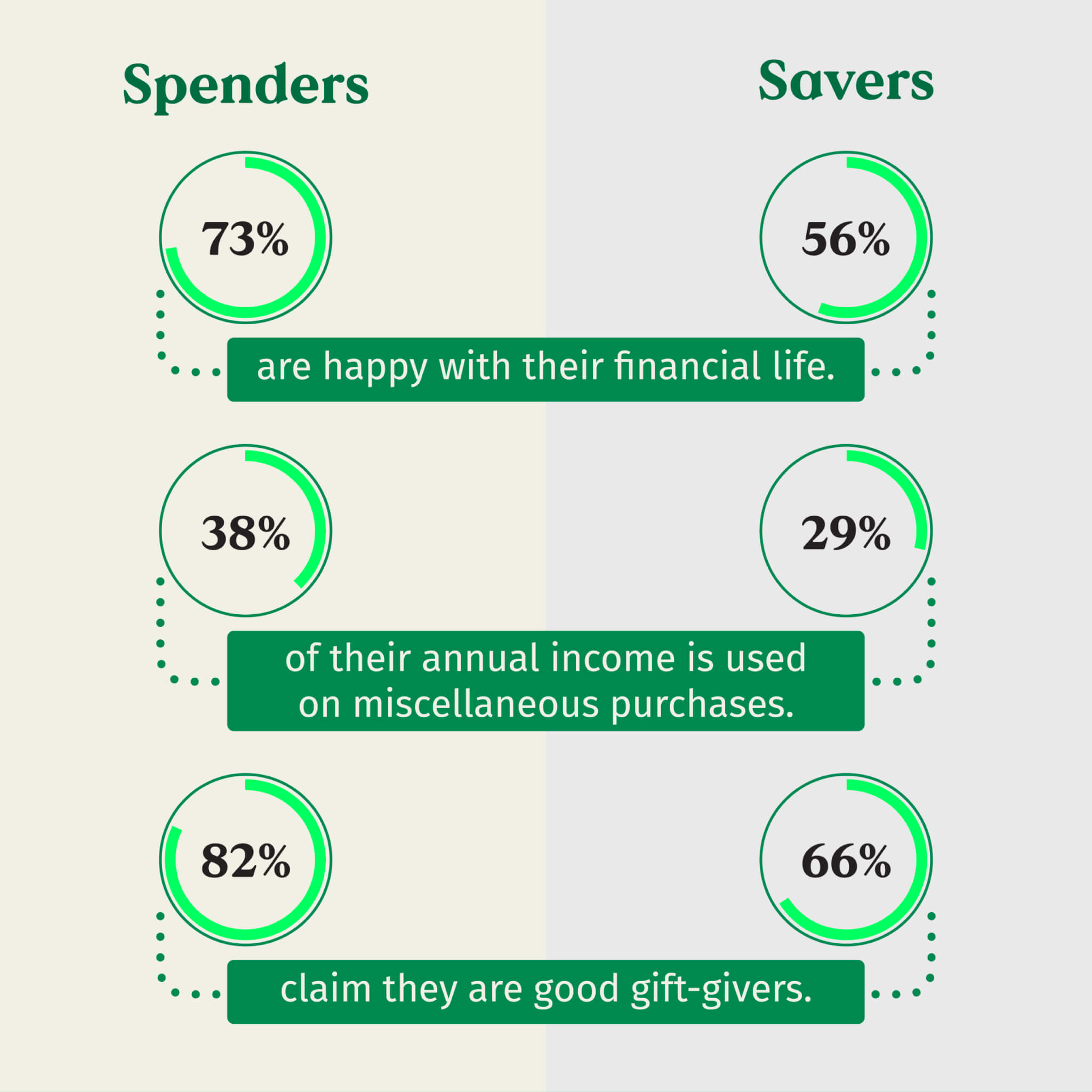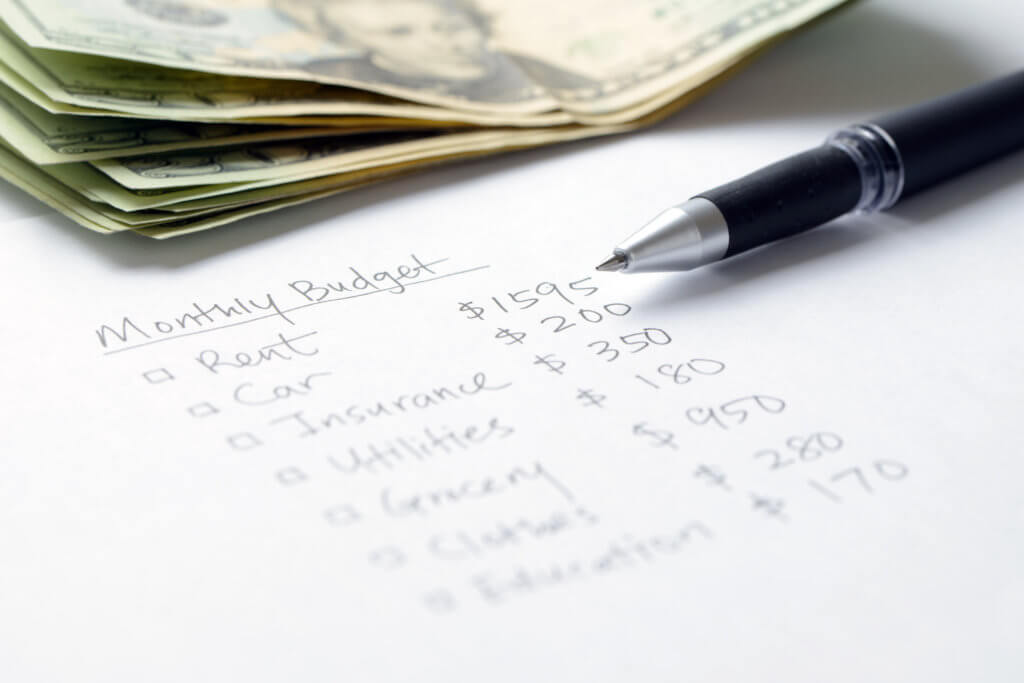NEW YORK — “Spenders” are happier with their lives, but “savers” are wiser, a new survey suggests. The poll of 2,000 American shoppers finds 56 percent of Americans consider themselves to be “spenders” — splurging for things they really want, while 34 percent identified themselves as “savers” who won’t shop until what they want goes on sale or becomes a necessity.
Meanwhile, 10 percent didn’t claim to be either kind of shopper. Perhaps unsurprisingly, spenders were found to spend more money on non-essential items during any given week by nearly double what savers spend ($621, compared to $348).
In turn, savers were found to set aside less of their total income toward non-essential purchases than their spender counterparts (18%, compared to 22%).
Are you a spender? You might also be interested in:
- Best Costco Black Friday Deals: 50 Markdowns Recommended By Bargain Experts
- Best Black Friday Best Buy TV Deals: Top 5 Discounted Devices Most Recommended By Experts
- Best Walmart Black Friday Deals: 5 Must-See Discounts, Per Experts
Compared to savers, spenders were also found to be happier with their relationships (78% and 63%, respectively), work-life (78% and 57%, respectively), and personal life (77% and 71%, respectively). Interestingly, spenders were also happier with their financial lives than savers (73% and 56%, respectively).
However, savers might have the upper hand when it comes to managing their money — only 29 percent of their total annual income is used on miscellaneous purchases, while spenders are using up 38 percent of their income.

Commissioned by Citizens Pay and conducted by OnePoll, the study also finds that 59 percent “often” and “always” think through the financial impact of big purchases before deciding if they’re worth buying. Despite their proclivity for spending, spenders are more likely than average to consider the financial impact of a big purchase (61%).
The items people think through and research the most are personal electronics (59%), vehicles (50%), and vacations (40%). For 32 percent of spenders, fitness or recreation equipment is a highly considered purchase, whereas 34 percent of savers are likely to do their homework before purchasing household appliances.
Before making major buys, respondents often consider how long the purchase will last them (61%), how often it will be used (57%), and if they’re getting the best price (55%). Three in 10 consider the availability of financing or pay-over-time options.
Are you a saver? You might also be interested in:
- Best Affordable Laptops: Top 7 Budget-Friendly Computers Recommended By Experts
- Best Budgeting Apps for 2023: Top 6 Money Management Services Recommended By Financial Experts
- Best Banks For 2023: Top 5 Financial Institutions Most Recommended By Experts
Big purchases were then defined as “any purchase” that exceeds $1,762, on average, and many of those purchases warrant nearly 12 hours of research beforehand. On average, people will postpone their big purchase decisions for 17 days to wait and see if it goes on sale.
“In a way, it makes sense that people feel happier when they’re spending more,” says spokesperson Christine Roberts, EVP and President at Citizens Pay. “But spending more isn’t necessarily the same as spending responsibly. What’s really important is the level of consideration people have and the impact their purchases have on their financial livelihood.”
The findings show some universal habits among all shoppers, as well. Over a third (37%) said they plan out their budget on a weekly basis, with nine percent doing it daily. Two in three of these budgeters claim they’re “strict” with their spending plans.
Many respondents shared similar personal financial goals, including building a retirement plan (53%), building an emergency fund (52%), building an investment portfolio (47%), and affording a home (41%).

Three in four also claim it was easy for them to discern the difference between the things they “want” and the things they “need.” Of course, 78 percent agreed it’s satisfying when purchases can be considered both.
Four in 10 also indicate that they were already planning out their holiday budget for this year, setting aside an average of $1,792 for gifts. Among those planning ahead for the holidays, spenders are already planning to purchase 13 items, compared to nine items for savers.
Three-quarters (74%) of these holiday shoppers claim they were good gift-givers, while only eight percent admitted they were terrible at it.
Nearly four in 10 (39%) are planning on using buy-now-pay-later (BNPL) or pay-over-time services for holiday shopping purchases this year. However, 43 percent note they do not use these services more during the holiday shopping season compared to the rest of the year.
“The holiday season is a prime time for people to spend a lot of money all at once,” adds Roberts. “We recommend that people create a comprehensive budget for themselves and ask themselves what factors satisfy their holiday buys, either for themselves or for people they plan to gift.”
Survey methodology:
This random double-opt-in survey of 2,000 American shoppers was commissioned by Citizens Pay between September 7 and September 9, 2023. It was conducted by market research company OnePoll, whose team members are members of the Market Research Society and have corporate membership to the American Association for Public Opinion Research (AAPOR) and the European Society for Opinion and Marketing Research (ESOMAR).


Yes they are happy short term. When they are 70 and working as a Walmart greeter probably not so much.
Of course the spenders are happier. The savers are working day and night to make the money to keep the spenders happy.
Spot on.
One thinks that personal outlook of life expectancy is a significant factor. Was there any query in the study regarding this?
The ants and the grasshopper. Saving 35% percent of my income was not easy. But it allowed me to tell my employer to kiss my ass as they became nutty/desparate and I became 65.
The article mis-leads when it comes to cause and effect. The savers are not really more unhappy, They are saving because they are naturally worried about long term effects of spending money on unnecessary items, trips to Bermuda, etc. The spenders are naturally happier because they are receiving the short term gratification their personalities crave. The unhappiness of the savers is exacerbated by the knowledge that the spender will expect the savers to share their savings when reality kicks in at the end of their working lives. These spenders are the same ones currently spending all their money on instant gratification rather than paying off their college loans. They think the savers should pay them off. The savers that paid off their loans, or never had them in the first place.
My do-nothing girlfriend who seems to have no ambitions in life except spend my money is quite a bit happier than me. I can’t even get her to be selfishly productive (start her own business). She just wants to sleep all day and then party all night, at 34 years-old. She is DEFINITELY a spender. She finds it hard to save $50/month even when I’m paying literally everything. She also routinely lectures me on how I’m the one who gets stressed, depressed, and has anxiety.